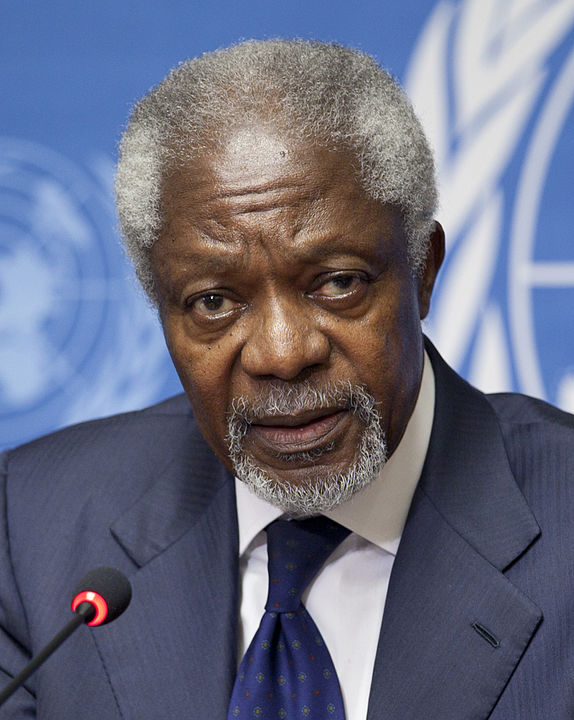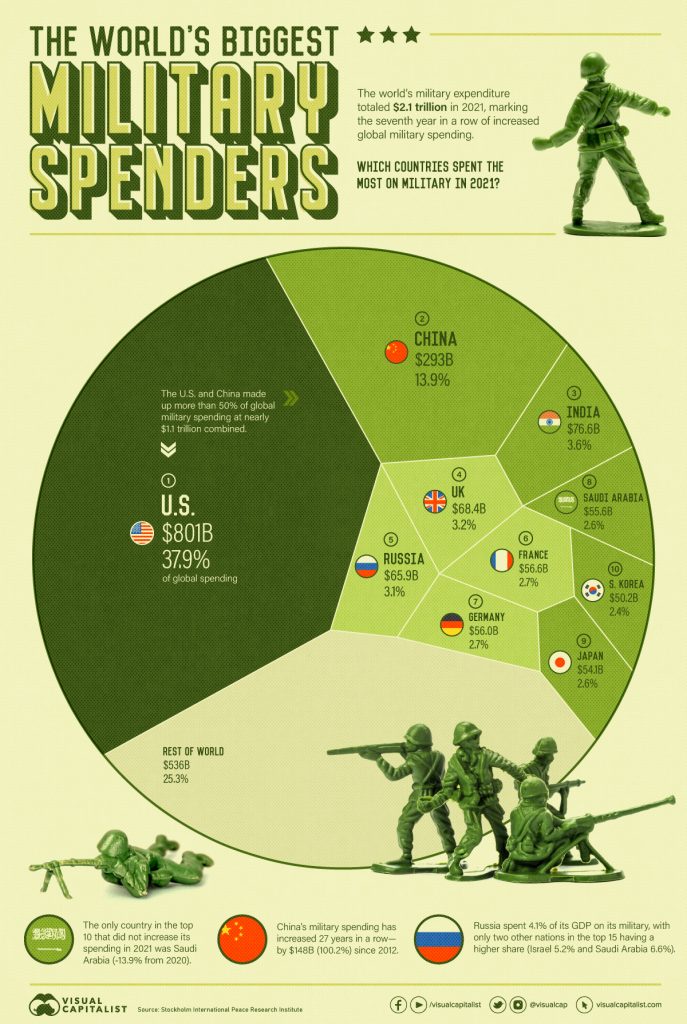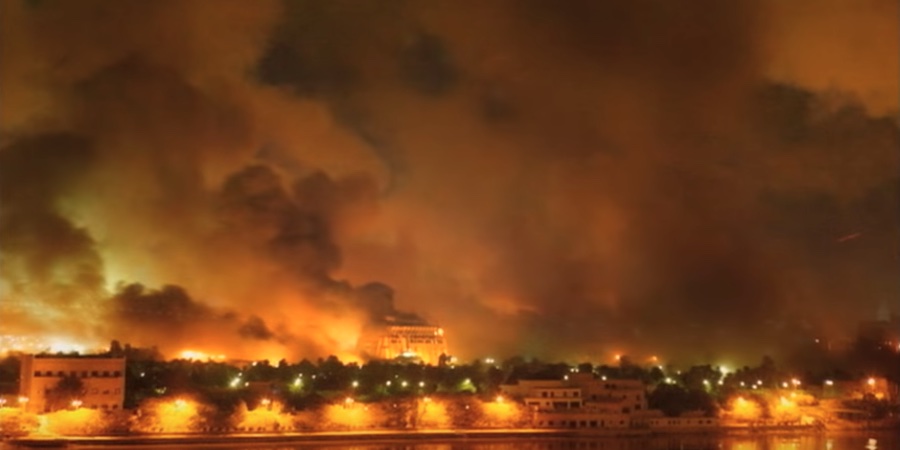1.
The history of U.S. foreign policy since the end of the Cold War can be seen as a litany of forceful regime-change projects undertaken in other countries around the world, with the force used being sometimes military, sometimes economic, sometimes both. Among these projects, the invasion of Iraq launched twenty years ago, on March 19, 2023, stands out for several reasons. These include the scale of the military operations involved, the level of the destruction inflicted on Iraq, and the jaw-dropping effrontery of the decision Pres. George W. Bush had taken to launch the war without any authorization from the United Nations.
Throughout the post-Cold War era, government officials and members of the (often fawningly compliant) U.S. punditocracy have cloaked most of Washington’s regime-change projects in some form of “humanitarian” or “international law” justification. The invasions of Afghanistan and Iraq were, in their initial inception, different. The main driver of the decision to invade Afghanistan was angry revenge for the attacks of 9/11. The excuse used for invading Iraq was the (quite unsubstantiated) allegation that Pres. Saddam Hussein was manufacturing chemical or biological weapons. In both those cases, though, the original “reason” for the invasion was soon adorned with all kinds of other gauzy, feel-good justifications, usually lumped together under the rubric of “nation-building.” In the case of Iraq, after Pres. Hussein was removed by force of U.S. arms, his ruling Baath Party would be speedily disbanded and a democracy would magically be planted in Iraq featuring a new Constitution; a court system capable of conducting war-crimes trials; a decentralized political system; a flourishing free-market economy; and even—as many of the invasion’s most ardent proponents hoped—peace with Israel. The template that many of the war’s planners seemed to be using for their post-war planning was that of the Allied occupations of Germany or Japan in 1945.
As we know, almost none of those oft-touted goals were achieved—or, when they were, they proved of little or no value to Iraq’s people. Iraq did, at a formal level, get a new Constitution; but the version adopted foisted onto the country a “muhasasa” system of divvying up the top posts along sectarian lines, such as had already, for many decades prior, proven deeply dysfunctional in Lebanon. Iraq did get some political decentralization (as foisted onto it by numerous DC politicians including then-Senator Joe Biden, who had earlier voted enthusiastically for the invasion itself.) But Iraq’s decentralization did not prevent the intrusion into its political sphere of numerous powerful militias or, in 2014, the explosive arrival of the completely new and disruptive political force IS, the Islamic State.
Today, Iraq is a country broken in many, many ways. More than 600,000 Iraqis died as a result of an invasion and occupation that also cost U.S. taxpayers $2 trillion. And the U.S. military is still deployed today in large parts of the country (and in neighboring parts of Syria), in areas to which it rushed to after the eruption of IS, and where it has still stayed.

In 2004, UN Secretary General Kofi Annan admitted that the U.S. invasion of Iraq was a completely unauthorized use of force and therefore in violation of international law. But no serious attempt was ever made at the United Nations (or within U.S. domestic politics) to hold the Bush administration accountable for that violation.
Washington “got away with it” in 2003. Pres. Bush and his top officials invaded Iraq because they could. And they got away with their aggression completely unpunished.
Eight years later, in March 2011, the Obama administration was a little more careful when it worked with NATO to use military force to effect regime change in Libya. It pushed the British and French militaries to take the lead and it expended a little energy to get a force-permitting resolution at the Security Council. But when it did get one (Resolution 1973, authorizing creation of a no-fly zone around Benghazi), it immediately worked with the NATO allies to exceed the terms of that resolution and to chase Pres. Muammar Qadhafi and his government to a cruel and deadly finish.
Libya’s shattered society still feels the disastrous effects of that upheaval, today.
Later in 2011, seeing what they had gotten away with in Libya, Pres. Obama, Sec. of State Clinton, and their coterie of regime-changers made a plan to similarly stir up, and then exploit, anti-government demonstrations in Syria. They had the help of key anti-Asad governments in the region, including Türkiye, Jordan, Qatar, and the UAE. But in Syria they could not topple Pres. Asad. Instead, their destabilization campaign left the country locked until today into a debilitating series of interlocking conflicts with no end in sight.
Twelve years after 2011, Libya and Syria are still badly broken countries… And so are Iraq, Afghanistan, Somalia, Venezuela, and numerous other countries that have been the targets of U.S. regime-change projects since the 1990s.
Small wonder that the Sri Lankan commentator on international affairs Indi Samarajiva recently wrote,
If Westerners start talking about ‘liberating’ your country and start waving your flag, fucking run… Flooding a warzone with more weapons, more propaganda, more conflict, all under the guise of ‘helping’. Like they helped Afghanistan, like they helped Iraq, like they helped Vietnam, in truth like they wrecked countless nations for countless years. If a Westerner tries to help you, fucking run. Their arms dealers help themselves and leave your country in ruins.
2.
The impunity with which Washington emerged from its flagrantly illegal 2003 invasion of Iraq had consequences at many levels. As I tried to show above, within the circles of U.S. policymakers of both parties this impunity encouraged a “no holds barred” attitude toward foreign military forays during the years that followed. (It also encouraged an escalated use of harsh economic sanctions in the service of regime change, as in Iran, Russia, Venezuela, and elsewhere.) For most of the world outside the NATO bubble, meantime, the bragging impunity with which Washington emerged from 2003 slowly hardened into a judgment that, far from being the “leader” of a “rules-based order”, the United States was/is an arrogant scofflaw that would breach the rules of the international order whenever it damn’ well pleased.
Today, this view is widespread, I would even say prevalent, among the 95% of humans who are not U.S. Americans and is even more strongly held among the 89% of humans who live outside the “NATO bubble.”
Over the past year, the crisis in Ukraine has proved to be a “price-revealing event” regarding the weight of the United States’ global soft power. One strong piece of evidence: in the periodic votes the UN General Assembly has taken on U.S.-led resolutions to condemn Russia for invading Ukraine, states representing a clear majority of humankind have repeatedly declined to support those resolutions. At the presentation of the latest such resolution, February 24, the decliners included China (population 1.43 billion), India (1.43 bn), and Pakistan (241 million), all of which—along with 29 other countries—registered a formal abstention from the vote. Twelve further countries declined even to be present for the vote. Russia and six other countries voted “Nay.”
U.S. officials were quick to crow that “141 countries” had supported the resolution. But these supporters included numerous tiny statelets with populations far smaller than that of my (as it happens, disenfranchised) hometown, the District of Columbia.
3.

If the Ukraine war has proven to be a “price-revealing event” regarding Washington’s command of soft power, it is also right now proving to be increasingly revealing regarding the (in-)effectiveness of Washington’s very expensively built military power. The DOD budget for the current financial year was $816.7 billion, giving the United States far and away the heftiest military budget of any country in the world. And the U.S. military has some 750 bases overseas, three times as many as all the world’s other countries combined!
It’s true that in Ukraine, Washington has—very wisely—decided not to deploy its own military or those of NATO allies to the war-zone. But it has undertaken a big effort to send to Ukraine large (and expensive) quantities of arms and materiél tailored to Kyiv’s pursuit of an energetic ground war against the Russian invasion force. These arms shipments have always, until recently, been accompanied by braying U.S. propaganda that “the Russians are just about to run out of ammunition; if we can send just a bit more, then Ukraine can win!” But over the past few days the Washington Post and, just today, the even more rabidly anti-Russian New York Times have started to run reports indicating that the Ukrainians’ ammunition supplies are running dangerously low. (The intriguing reporting from the WaPo, on March 13, was followed up today by a small report there that the main Ukrainian commander the reporters had earlier cited was thereafter speedily demoted…)
It’s true that most of these reporters still feel obliged to add in the boilerplate language to the effect that, “Russia’s losses are estimated to be much higher than Ukraine’s.” But they never provide any credible sources for those claims. And anyway, the decisions of those editors to run these pieces about Ukraine’s ammo shortages indicates that real concern is finally brewing in the Washington punditocracy about the possibility of a debâcle in eastern Ukraine.
For a while now, several commentators operating outside DC’s “access journalism” bubble have been warning that the United States and its NATO allies have for many years lacked the kind of robust military-industrial base that’s needed to sustain a major land war: large factories for manufacturing steel and transforming it into artillery shells or armored vehicles, and so on. Instead, in the post-Cold War era of a U.S. hegemony that was not challenged by any other equally large and capable power, Washington’s lavishly funded military-industrial complex focused on developing lots of very niche, whizz-bang gadgets that enabled the military to do things like have soldiers sitting in a base in New Mexico operate drones that could kill a named individual sitting in a cave literally half a world away… Or constant, very expensive upgrades to the U.S. nuclear arsenal… Or, a myriad of other niche projects pushed for by the always-generous lobbyists for Raytheon, Lockheed, Boeing, and other big military industries. But continued solid investment in the kind of very basic “arsenal of democracy” that powered the U.S. victory in World War I and World War II? Nah, not so much.
It turns out the decline of the U.S. manufacturing base that lies at the root of so many of the country’s challenges in both domestic politics and the conduct of international affairs is also a burning problem on the battlefields of Ukraine…
4.
Let me be clear. What I am not arguing here is that the United States or any other countries should be ramping up their military industries in any way at all. What I am inclined to argue—and I hope to do this at much greater length in the near future—is that ever since Washington’s introduction of nuclear warheads into the military mix in 1945, warfare of all forms has had a steadily declining utility. This utility has not yet declined to zero, as we have been seeing in Ukraine. But at the end of the day—and may this come soon!—the political future of Ukraine will certainly be delineated much more at a negotiating table than on a battlefield.
Is this not a lesson that Americans and others should long ago have been able to take away from the course of the 2003 invasion of Iraq?
That invasion saw what is probably the United States’ last-ever conduct of a large-scale ground war, with massively fortified tanks rumbling up the country’s highways to Baghdad from the south breaking and wrecking everything in sight as U.S. warplanes and cruise missiles screeched overhead delivering their portion of “shock and awe” to the capital’s population. Yes, the United States decisively “won” that war, conducted against an army and a government long severely weakened by 12 years of harsh and mega-lethal economic sanctions. But what did the United States gain, politically, in Iraq that was of any value? Nothing, unless you are so rabidly anti-Arab that you judge the breaking of a previously proud Arab country and society to be a win.
5.
In today’s situation, with a Ukrainian military that is on the brink of collapse, I am more happy than ever that at the global level there is at least one adult in the room. This is China, a country whose government has steadily, throughout the whole of the current Ukraine crisis, reiterated its support for the core UN principles of the sovereignty, independence and territorial integrity of all countries, while it has also called for a speedy negotiated end to the conflict.
On February 24, as we know, the Chinese Foreign Ministry, issued a 12-point peace plan for the conflict in Ukraine that is solidly based on these principles. Within the coming days, Pres. Xi Jinpeng will be visiting Moscow; and he is reported to have scheduled a conversation with Ukraine’s Pres. Zelenskyy soon thereafter. (Zelenskyy has expressed himself as being open to considering at least some aspects of the Chinese peace plan. In Washington, by contrast, all the officials asked about the plan have derided it as “unserious”, or worse.)
China’s power in the world, we should note, is based very much on its projection of soft power—stemming mainly from the many intricate webs of economic interaction that it has built around the world, but also increasingly on the steady, intelligent way it has developed its diplomatic capabilities—rather than on its ability to dominate and coerce through military means.
One small vignette of the many that have stayed with me since the period after the U.S. invasion of Iraq is a report that Bob Fonow, a Quaker telecomms specialist who had worked as a contractor for the U.S. occupation in Baghdad, sent to me in 2008. One of Fonow’s big tasks was to arrange the retraining of the hundreds of thousands of experienced IT specialists that Iraq then had from the Soviet/Russian-style systems they had become accustomed to, to the Western-style systems that Washington wanted them to adopt. Fonow reported that the only country capable of doing the retraining on such a scale was China. And China already had relationships with high-level officials in Iraq’s Ministry of Communications that went back to the mid-1990s. (You can read his whole report here.)
Indeed, in both Iraq and Afghanistan, one major effect of the massive military investments that U.S. taxpayers were forced to make in the overthrow of those countries’ governments was that Chinese businesses ended up widely expanding their markets and their access to vital raw materials. Go figure.
6.
My bottom line on the current, somber anniversary of the United States’ invasion of Iraq, and its implications for Ukraine, is that in Ukraine the coming weeks are likely to see significant developments at a number of levels, both on the battlefield and—even more importantly—in the sphere of diplomacy. I strongly hope that these weeks will see real strides being made in shifting the conflict from the battlefield to the negotiating table. The peoples of the whole world (including Ukraine) can only benefit from that.



Excellent article Helena. It disturbs me that we will never see an article like this in MSM. Sadly it means you are preaching to the choir. But I for one am still glad you do it. Thanks.
I’m so proud for my spouse and I to be able to support your work. I just wish we could send more $$$! To see the ways you connect history with the current issues makes me wish you could produce even *more* content. Thank you for the vast amount of excellent work you are doing, Helena.
Thank you so much for this thoughtful and informative piece, Helena. It helps in the never-
ending and ever more urgent work of opening eyes! Your work continues to be so important.
1/ “with a Ukrainian military that is on the brink of collapse”
Not so. Fatigue & shell shortages are routine at this stage in a war. And in case no one noticed, the Russian army has ALREADY collapsed, several times.
2/ Here’s a word on the issue of Russian war crimes. If anyone says there’s little or no credible evidence, not not believe them! There are hundreds of organizations, thousands of governments, & millions of individuals documenting Russia’s enraging & despicable atrocities. If it hasn’t already, it will soon surpass the Holocaust as the best-documented occurrence in history. I cannot speak for the whole historical profession, but I’m quite confident that my colleagues will place atrocity denial on the same plane as Holucaust denial. That is not the proper place for pacifists. Thank you.
Here is the statement read in today’s Assembly by our young Ukrainian friend:
“Thanks to FOR for organizing this event and bringing attention to this dreadful war. I need just one minute of your time to share the perspective of Ukrainians. I believe that an armistice now only gives Russia a good basis for new invasions. I have friends, a young married couple, split apart because of this war. Last month they were finally reunited after 14 months. An armistice will not help reunite such families in safety. Ukraine wants peace: it is our primary goal. But we want peace with justice. After so many people risk their lives protecting their homes, we cannot just leave them for the Russian system. We want full withdrawal to prewar borders. We want Russia to pay reparations and we want all war criminals brought to justice. Unfortunately, an armistice will not help to achieve justice and peace for people of Ukraine. Thank you for your time. ”
Ana & her friends are as fine a group of activists as I’ve ever seen. It is an honor to be inspired by them!